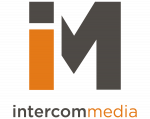Having the latest business technology is essential for companies to operate efficiently and remain competitive. It can help companies speed up processes, reduce waste, and create new products or services.
For example, businesses can use new technology to automate tasks, such as customer service or data entry. That can free up employees to focus on more critical tasks, such as sales and marketing. In addition, technology can help businesses save money by reducing the need for paper documents and storing data electronically.
Finally, businesses can use cutting-edge technology to develop new products or services that are more efficient or cheaper than their competitors. With these, companies can tap into new markets and generate additional revenue.
How to Choose the Best New Business Technology
To decide on the best new technology for their business, managers consider different factors. The three main factors are availability, performance, and scalability. Other essential factors include security, compliance, and costs.
Availability
Availability is how often the technology works and can be accessed when needed. It should not have any downtime, or the business will grind to a halt.
For instance, if a company relies on the internet to process payments, the website should be up and running 24/7.
Performance
Performance is how well the technology works during use. Technology should help businesses run more efficiently and quickly. The system must be able to handle the demands placed on it. If it cannot keep up with demand, the business will suffer.
For example, if your business requires employees to track time, then the time-tracking software should be able to handle the number of employees using it without slowing down.
Scalability
Scalability is the technology’s ability to grow with the business and accommodate more users and more data. If it cannot, the company will need to invest in a new system.
For example, a startup company may be content with a small server that meets its current needs. But as the business expands, it may need to invest in a cloud-based solution that can accommodate a more extensive customer base.
Security
Security is now a significant concern for businesses of all sizes. Data breaches are increasing, and the cost of recovering from a breach can be high. As a result, it’s crucial to select business technology that includes robust security features.
Companies need to be able to trust that their data will be adequately protected from unauthorized access and theft, whether it is on the cloud or on-premises.

Compliance
Compliance with relevant regulations should always be a top priority, especially for businesses subject to regulatory oversight. Failure to comply can result in hefty fines.
There are a variety of compliance standards that businesses must meet. These include the Health Insurance Portability and Accountability Act of 1996 (HIPAA) and the Payment Card Industry Data Security Standard (PCI DSS).
Costs
Finally, costs are always a significant consideration when selecting business technology. While innovative technology can help to improve productivity and efficiency, it is also important not to overspend on capabilities that your company may not need for your particular business.
In addition to upfront costs, consider ongoing maintenance and support costs. Finally, evaluate the costs of adapting your business processes to accommodate new technology.
When choosing the right technology for their business, managers must carefully consider all these factors to ensure they get the best possible return on investment. By taking the time to assess all the options and evaluate the needs of the business, managers can find a solution that will help their business thrive.
How to Manage Business Technology
Once you have the best new technology for your business, you must maintain them properly.
Server Tuning
Microsoft SQL is known for its complex and occasionally unpredictable performance curve. Despite these challenges, it is possible to manage and maintain SQL servers to remain responsive and functional under pressure.
Get a Microsoft SQL Server performance tuning service that will continuously monitor server resources and take proactive steps to prevent problems. That is essential for maintaining optimal system performance over time.
Backing Up Data Regularly
Another critical aspect of managing your business technology is keeping track of your data and backups. Whether it’s client information, financial records, or product inventories, it’s essential to keep everything backed up. Depending on the system you use, this may involve backing up data to an external hard drive or transferring it to the cloud.
The key is to make sure that those backups are done regularly and reliably. Having copies of important data and documents helps ensure that critical information isn’t lost in a disaster or system failure. A single mishap or technical issue can damage your business if you aren’t prepared for it. Ultimately, protecting your data is essential if you want to succeed in today’s increasingly digital economy.
Stay Updated and Manage the Latest Technology
To stay competitive, your company must invest in new technology continuously. That may include upgrading existing systems or adopting new software and hardware solutions. Maintaining your company’s technology is just as essential. By staying up-to-date with changes in the business technology landscape and ensuring proactive maintenance, managers can ensure that their businesses are always positioned for success.

